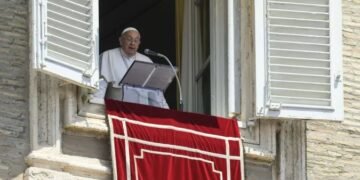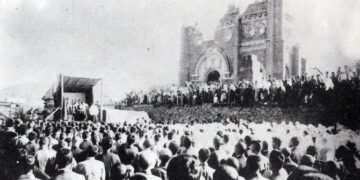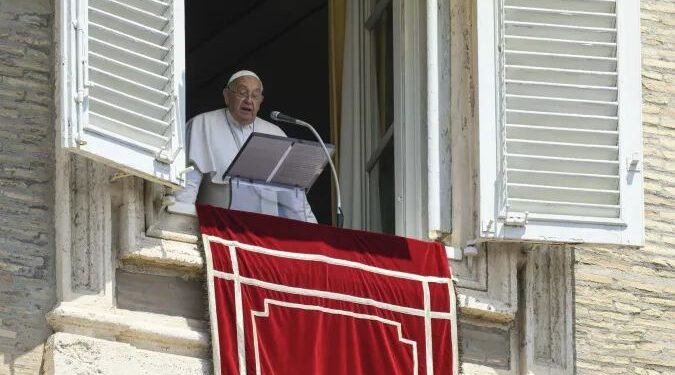By Charles Igwe
Pope Francis urged Catholics not to be consumed by “the anxiety of doing” and to find time for rest and silent prayer to receive God’s grace. During his weekly reflection and Angelus on July 21, the Pope cautioned against the “dictatorship of doing,” especially for those in ministry.
The Angelus, a Marian prayer, is traditionally recited at 6 a.m., noon, and 6 p.m. Addressing the crowd in St. Peter’s Square on a hot summer day, Pope Francis emphasized the importance of stopping to receive God’s grace in the silence of adoration. He warned against being “held prisoner by haste,” a pertinent reminder for those engaged in Church ministry.
“Am I able to stop during my days? Am I capable of taking a moment to be with myself and with the Lord, or am I always in a hurry for things to do?” Pope Francis asked from a window of the Apostolic Palace. He acknowledged that some families live at a frenetic pace due to economic pressures, which he called a social injustice needing attention.
Reflecting on the day’s Gospel passage, Pope Francis illustrated how Jesus balances rest and compassion. In the Gospel of Mark, Chapter 6, Jesus invites his apostles to rest but is moved with pity for the crowd waiting for them, teaching them many things.
“These may seem like two incompatible things — resting and being compassionate — but they actually go together,” the Pope said. He highlighted Jesus’ concern for his disciples’ tiredness and the risk of losing sight of what is essential in our ministries and lives.
Pope Francis explained that the rest Jesus proposes is not an escape from the world but a means to develop greater compassion for others. “Only if we learn how to rest can we have compassion,” he emphasized.
After the Angelus, Pope Francis spoke about the upcoming Summer Olympic Games in Paris and the Paralympics, set to begin on July 26 and August, respectively. He praised sports for their ability to unite people of different cultures peacefully.
“I hope that this event can be a sign of the inclusive world we want to build and that the athletes, with their sporting testimony, will be messengers of peace and good role models for young people,” he said. He also mentioned the ancient Greek tradition of the “Olympic Truce,” suggesting it as an opportunity to show a genuine desire for peace.











































